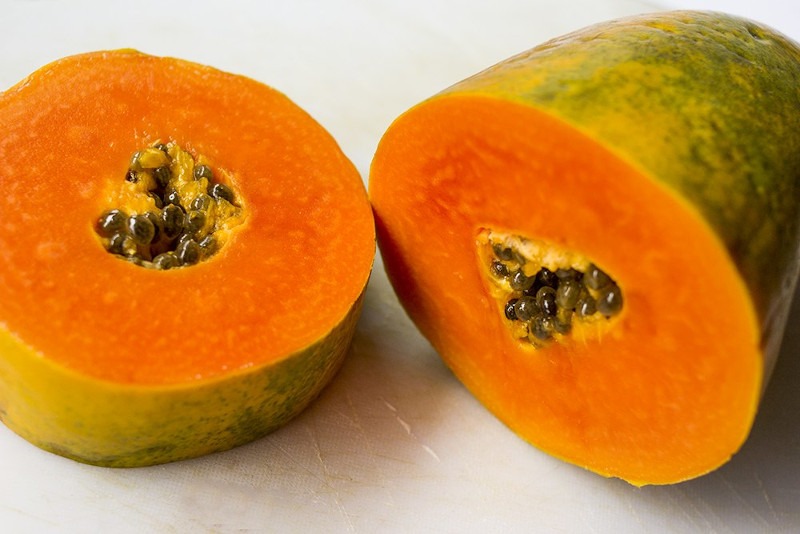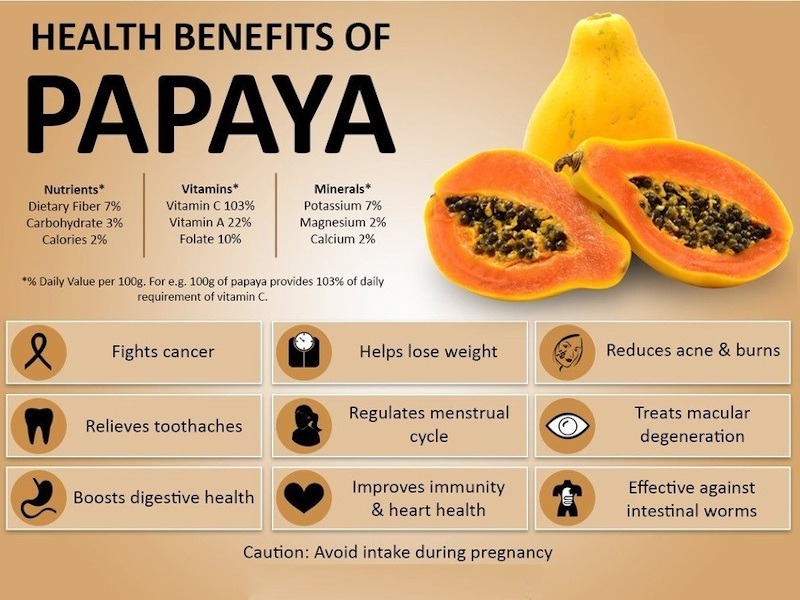
Richard Butler | Exclusive By Simeon Darwick of Voice of Guanacaste | April 22nd, 2020
Carica Papaya has a plethora of amazing uses that categorizes it as a super food— a food that is like medicine.
Its fruit has been used to treat many different digestive ailments such as indigestion, constipation and liver problems.
It’s also a diuretic for the kidneys and helps lower blood pressure. If you mix aloe juice with papaya, its properties are enhanced.
One of the more exciting bits of news about papaya is that studies show that its leaves, when made into an infusion (tea), are effective in preventing malaria.
In addition, according to a study by the Asian Pacific Journal of Tropical Biomedicine, an extract from papaya leaves showed potential in fighting dengue. Patients were given 25 mL of the extract in water and subsequently showed an increase in platelets, white blood cells and neutrophilis.
Researchers from the University of Florida, in collaboration with Japanese researchers, published research on the cancer-fighting abilities of papaya. These were not human studies but in vitro or lab studies. This research was published in the Journal of Ethnopharmacology. Their research documented that an extract from dried papaya leaves was effective against 10 different kinds of cancer cells: tumors of the cervix, liver, lung, pancreas, and breast. The papaya extract slowed the growth of the tumor cells in every culture.

The enzyme papain breaks down protein, which is why it is used to tenderize meat and aids in digestive. Papain breaks down the fibrin cancer cell wall. That makes the cancer cell more vulnerable to treatment such as chemotherapy. If the cancer wall is broken down, our own immune system can get to it as well. This is why it has been shown by several published research studies to work against many different kinds of cancer cells. They all have a common denominator of a protective cell wall made of fibrin. Papaya did not have any negative effects on the normal cells.
Papaya is also rich in other enzymes, vitamins and minerals. Enzymes are only found in raw food and are needed by every function of the body. When you are deficient in enzymes, there are many body processes that become compromised. Today’s diet, with inadequate amounts of fresh fruits and vegetables, leaves most people deficient in many necessary enzymes. This deficiency of enzymes also affects immune function. The rind can be used to heal many skin problems or as a beauty treatment. The juice of the trunk is said to be successful in treating warts.
Papaya is not really a tree. It is a perennial plant, meaning that it grows for more than two years and does not need to be replanted each year.
One papaya perennial can produce up to 150 pounds (68 kilograms) of fruit per year on 2 square meters of land. It is truly a sustainable food for the people of Guanacaste as well as the land.
Papaya aloe juice
Take one large aloe leaf and fillet it. Add the gelatin to one liter of water and papaya to your taste. Blend and drink between meals. Take 3 cups per day.
Anti-Malaria Treatment
Note: This isn’t a cure for malaria but an additional treatment. Make a tea infusion using 2 leaves to 1 cup of water.
Papaya leaf juice for dengue
Devein fresh leaves and make a paste from the green, pulpy part. Since the paste is very bitter, you can mix it with fruit juice if necessary but water is most recommended. Take 4-5 teaspoons (20-25 ml) twice a day for at least a week.

